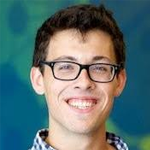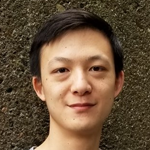Sample multiplexing facilitates scRNA-seq by reducing costs and identifying artifacts such as cell doublets and batch effects. We will discuss MULTI-Seq a universal and scalable sample barcoding strategy that utilizes lipid-tagged indices for single-cell and single-nucleus RNA sequencing. MULTI-seq reagents can barcode any cell type or nucleus from any species with an accessible plasma membrane. The method involves minimal sample processing, thereby preserving cell viability and endogenous gene expression patterns. We will further discuss the extension of lipid tagged indices to analyze samples while preserving spatial information called ZipSeq that uses patterned illumination and photocaged oligonucleotides to serially print barcodes (Zipcodes) onto live cells within intact tissues and discover spatial patterns in cell type distributions and gene expression.
 Chris McGinnis
Chris McGinnis
Researcher
UCSF
Chris graduated in 2014 from Wesleyan University, where he studied biochemistry and philosophy of science. Chris then started his PhD studies at UC San Francisco in 2016 and has developed computational and molecular tools for single-cell analysis, including DoubletFinder and MULTI-seq. Chris is now applying single-cell genomics technologies to perform high-throughput drug screens coupled to scRNA-seq read-outs, and is applying insights gained from these screens to the field of cancer immunology.
 Kenneth Hu
Kenneth Hu
Researcher
UCSF
Ken graduated from MIT in 2012 studying biology and physics. He then went on to his PhD studies at Stanford where he developed techniques for dual fluorescence and atomic force microscopy on live cells to study the interaction of mechanical forces with signal transduction in T cells. In 2017 he joined Dr. Matthew Krummel's lab at UCSF as a postdoctoral scholar, where he developed ZipSeq and is utilizing it to dissect interactions between immune cell populations in the tumor microenvironment.

详情
Fill Out Form to Access Webinar
Your email address is never shared with third parties.
- 日期和时间
- 2020年4月28日
- 9:00 AM (PST)
- Topic
- Cellular & molecular biology